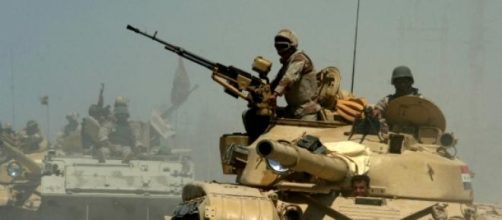After a month long concerted effort, Iraqi military forces retook the critical city of Tikrit from ISIS, arguably the most significant defeat for the extremists since their rapid offensive the began over nine months ago. The Prime Minister of Iraq, Haider al-Abadi, walked freely in the streets of Tikrit carrying an Iraqi flag amongst cheering troops. Government forces now seek to establish normalcy in the city as quickly as possible, stated the Iraqi interior minister.
The coordinated effort to recapture the city from ISIS, which has held Tikrit since last summer, involved government forces, Iranian-backed Shia militias, and allied Sunni tribal fighters.
The cooperation between Shia and Sunni fighters has been cited as critical to the future success of the Iraqi state. The offensive was also supported by US airstrikes that were requested by the government a week prior, stirring some controversy. Winning back Tikrit, which has been recognized as the birthplace of the late Saddam Hussein, serves as a significant symbolic victory in the arduous fight against ISIS.
Defense Minister Khalid al-Obeidi spoke of the success as a major step toward the liberation of the governorate of Saladin, located northwest of Baghdad. He stated much still needed to be done to reclaim and reestablish control, but showed optimism for the trial ahead. Obeidi announced, "We have the pleasure, with all our pride, to announce the good news of a magnificent victory." Naming the regions still controlled by the jihadists, he continued ""Here we come to you, Anbar!
Here we come to you, Nineveh, and we say it with full resolution, confidence, and persistence."
Although the defeat of ISIS in Saladin province was met with optimism, the same week ISIS extremists were able to infiltrate deep into the Syrian capital of Damascus. Jihadi fighters allegedly entered the Yarmouk refugee camp, home to some 18,000 Palestinian refugees. Local Palestinian militia fighters countered ISIS in the groups first major foray near the capital of Syria.
